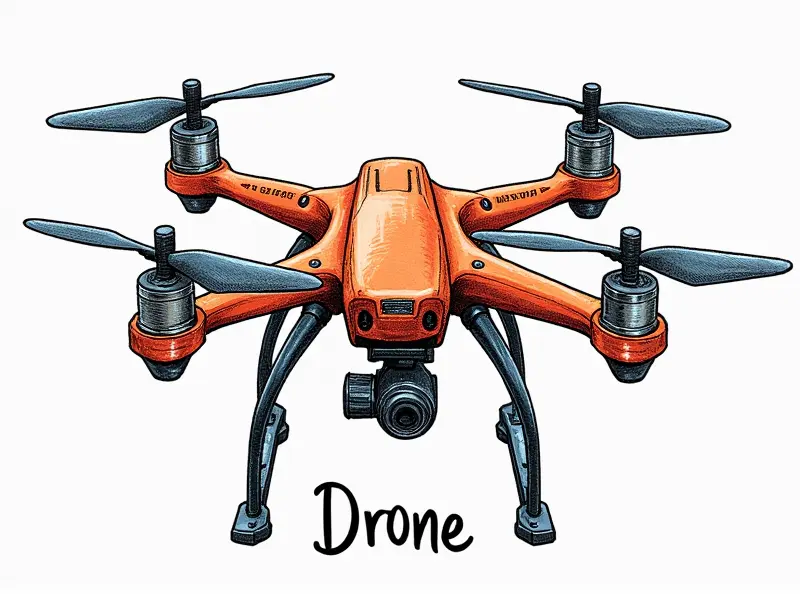Do Li-Po batteries explode?

Do LiPo Batteries Explode in RC Drones?
Lithium Polymer (LiPo) batteries are the powerhouses of modern remote control (RC) drones, offering high energy density and fast discharge rates. However, their use comes with a risk: they can potentially explode under certain conditions. This article explores whether LiPo batteries pose an explosion hazard in RC drones.
Can LiPo Batteries Explode in RC Drones?
The short answer is yes; LiPo batteries can indeed explode if not handled properly. The primary causes of explosions include overcharging, physical damage, and improper storage conditions. Overcharging leads to excessive heat buildup, which can trigger a thermal runaway reaction causing the battery to ignite.
Are LiPo Batteries Safe for RC Helicopters?
LiPo batteries are generally safe when used correctly in RC helicopters. However, safety precautions must be strictly followed to prevent accidents. Proper charging protocols and regular inspection of the battery's condition are crucial to ensure its longevity and safety.
Tips to Avoid LiPo Battery Explosions in Quadcopters
- Use a quality charger with built-in protection features.
- Avoid overcharging or undercharging batteries.
- Store batteries at room temperature and away from flammable materials.
- Inspect batteries regularly for physical damage, swelling, or leakage.
Do LiPo Batteries Pose Fire Risks in RC Planes?
The use of LiPo batteries in RC planes introduces a fire risk due to their high energy density and potential for thermal runaway. Proper handling, charging, and storage practices are essential to mitigate these risks.
Risks of Using Li-Po Batteries in FPV Racing Drones
- High discharge rates during racing can lead to rapid temperature increases.
- Inadequate cooling systems may cause overheating and potential fires.
- Physical impacts from crashes or collisions can damage the battery casing.
Understanding the Safety of LiPo Batteries in FPV Racing
FPV racing drones rely heavily on high-performance LiPo batteries. Ensuring their safety involves understanding the risks and implementing preventive measures such as using protective cases, monitoring discharge rates, and adhering to safe charging practices.
Tips to Avoid LiPo Battery Explosions in Quadcopters
- Use balanced chargers that monitor individual cell voltages.
- Avoid rapid discharging by ensuring adequate power reserves.
- Install fire-resistant battery compartments and cooling systems.
Is It Safe to Charge LiPo Batteries Near RC Equipment?
Charging LiPo batteries near RC equipment can be safe if proper precautions are taken. Ensure that charging stations are equipped with fire extinguishers, and never leave a charging battery unattended. Always charge in a well-ventilated area away from flammable materials.
Common Causes of LiPo Battery Fires in RC Vehicles
- Overcharging: Excessive voltage can cause thermal runaway.
- Physical Damage: Dents, cracks, or punctures compromise safety.
- Inadequate Storage Conditions: Extreme temperatures and humidity affect battery life.
How to Store LiPo Batteries Safely for RC Models
Safely storing LiPo batteries is crucial to prevent fires. Keep them in a cool, dry place away from direct sunlight and flammable materials. Use protective cases or bags designed specifically for battery storage.
Protect Your Drone from LiPo Hazards
- Invest in quality chargers with built-in safety features.
- Regularly inspect batteries for signs of wear or damage.
- Use fire-resistant battery compartments and cooling systems.
What Causes Li-Po Batteries to Explode in RC Gear?
The primary causes of LiPo battery explosions include overcharging, physical damage, and improper storage conditions. Overcharging leads to excessive heat buildup, while physical damage can compromise the integrity of the cells. Improper storage conditions such as extreme temperatures or humidity levels can also degrade battery performance and increase the risk of failure.
Conclusion
Lithium Polymer (LiPo) batteries are powerful energy sources for RC drones but require careful handling to prevent accidents. By following best practices in charging, storing, and inspecting LiPo batteries, users can significantly reduce the risks associated with these high-performance power cells.

